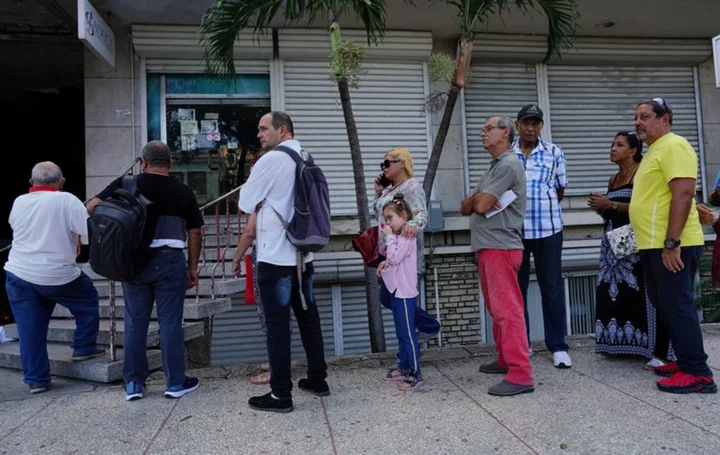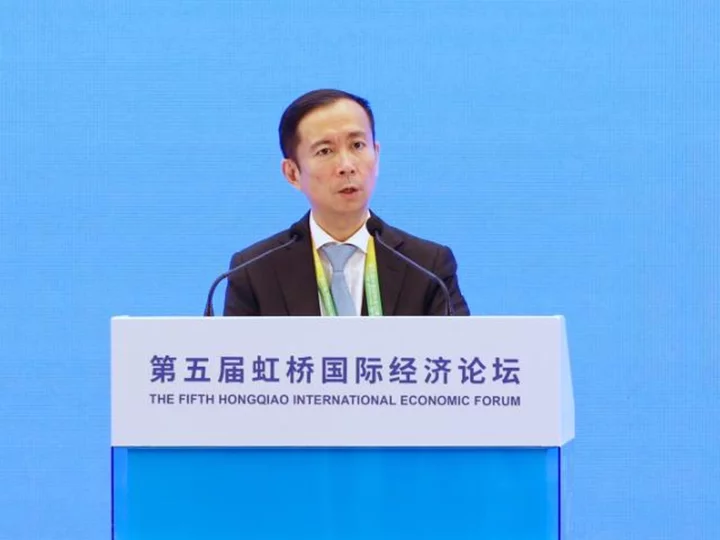Asian markets struggled for direction on Tuesday as investors weighed signs of a slowing US economy against hopes the Federal Reserve's interest rate hiking cycle could be nearing its end.
Data showing a sharp drop in the central bank's preferred gauge of inflation for May fuelled a rally across equities in New York last week and Asia on Monday.
The readings followed a series of indicators suggesting the economy remained in rude health, putting pressure on the Fed to keep tightening monetary policy.
Bank boss Jerome Powell has warned more hikes are in the pipeline owing to still-elevated inflation and the strong labour market, though analysts question whether it will follow through with that.
However, while traders take the view that "bad news is good news" as it gives the bank room to hold rates, the possibility of a contraction was keeping the optimism in check.
On Monday, a closely watched survey of US factory activity showed the sector shrank again in June and hit its lowest level since May 2020.
The reading from the Institute for Supply Management (ISM) also indicates the ongoing contraction in the sector is picking up pace.
Wall Street limped to a positive close -- with business thinned by traders winding down for the July 4 holiday -- but Asia was unable to maintain Monday's momentum
Hong Kong and Shanghai edged up, along with Wellington, Taipei and Jakarta, though Tokyo, Sydney, Singapore, Seoul and Manila dipped.
However, Jim Bianco, president and founder of Bianco Research, warned that while inflation was still falling, the Fed should be on alert as it could begin to climb again after getting to as low as three percent -- still above the bank's two percent target.
"If the inflation rate bottoms at three and starts drifting higher, the Fed's going to find this unacceptable, and that two rate hikes that we have priced in for the rest of the year will happen, if not three," he told Bloomberg Television.
Oil prices edged up on Tuesday, a day after dropping more than one percent as an initial rally sparked by Saudi Arabia and Russia's announcement of further output cuts faded away.
While the cuts will mean tighter supplies, rising interest rates and the lingering threat of recession are weighing on demand expectations.
"It was not too surprising that Saudi Arabia decided to roll over its additional, voluntary cuts," Warren Patterson, at ING Groep NV, said.
"Fundamentals are not having as much influence on price direction as one would expect. Instead, the uncertain macro outlook is what the market is focused on."
Investors are keeping tabs on China-US relations after Beijing on Monday imposed export controls on two rare metals essential for the manufacture of semiconductors, citing security concerns.
The move comes as the two tussle over the global market for chips and follows US moves to blacklist some Chinese companies in recent years aimed at cutting them off from access to American technologies, including the most advanced chips.
- Key figures around 0230 GMT -
Tokyo - Nikkei 225: DOWN 0.9 percent at 33,446.78 (break)
Hong Kong - Hang Seng Index: UP 0.6 percent at 19,4114.61
Shanghai - Composite: UP 0.1 percent at 3,245.90
Euro/dollar: DOWN at $1.0905 from $1.0912 on Monday
Pound/dollar: UP at $1.2691 from $1.2685
Dollar/yen: DOWN at 144.58 yen from 144.67 yen
Euro/pound: DOWN at 85.93 pence from 86.00 pence
West Texas Intermediate: UP 0.6 percent at $70.18 per barrel
Brent North Sea crude: UP 0.5 percent at $75.02 per barrel
New York - Dow: FLAT at 34,418.47 (close)
London - FTSE 100: DOWN 0.1 percent at 7,527.26 (close)
dan/smw









